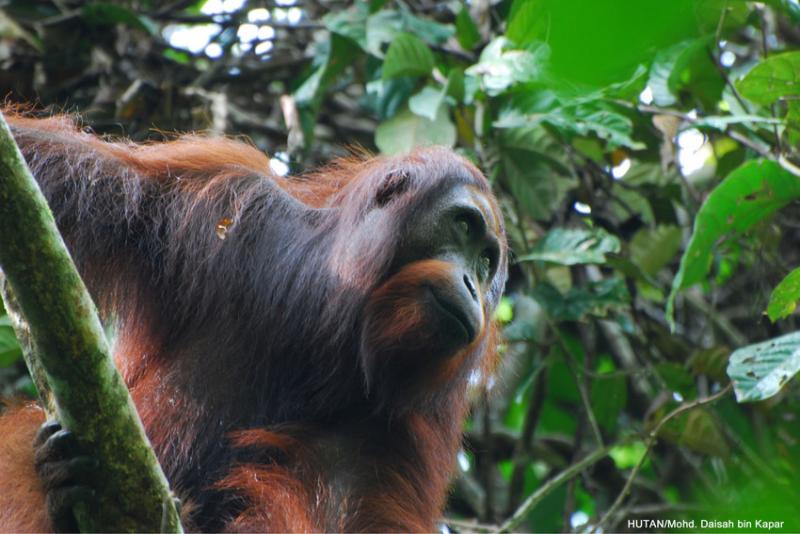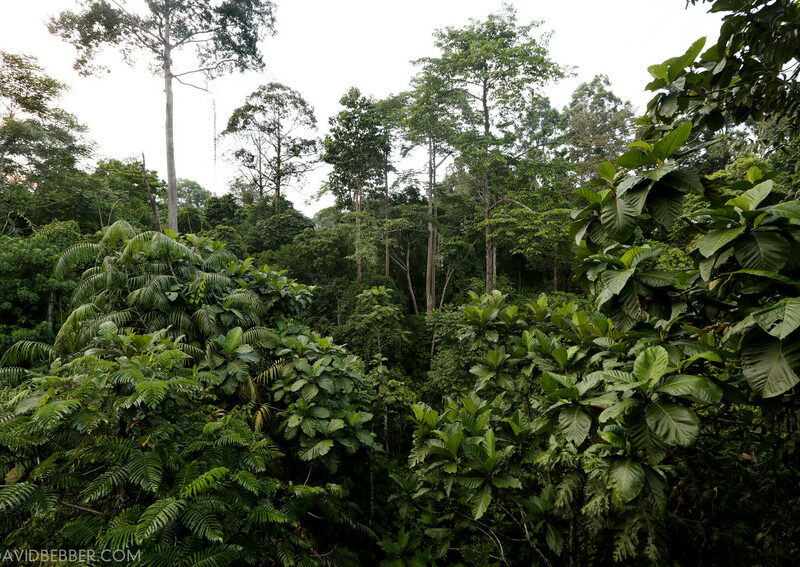Bornean Orangutan
Species Data
Class: Mammalia
Order: Primates
Family: Hominidae
Scientific Name: Pongo pygmaeus
IUCN Red List status: Critically Endangered
IUCN Species Distribution Map
Description
Orangutan is the only great ape found outside of Africa. The Bornean Orangutan, one of three orangutan species, is Earth’s largest tree-dwelling mammal.
Known for their shaggy, reddish fur and long arms, the impressive flange (cheek pads) are larger in male Bornean Orangutan than in the two species native to Sumatra. A male Bornean Orangutan has an average weight of 75kg, which is almost twice as much as the average female weight of 38.5kg, though their relative height does not vary quite so much.
Behaviour
Bornean Orangutan are solitary but occasionally social animals. While they live independently outside of reproductive or child-rearing stages, female territories often overlap and they do not display aggressive territorial behaviours. Infants will stay with their mothers for up to 11 years. Males travel further after leaving their mothers to find larger home ranges, and are openly hostile – though not aggressive – to other males within their territories.
Their intelligence is indisputable, and they are inventive in their use of natural objects from the forest as tools to help them extract insects, eat honey, and clean themselves. They have a fruit-based diet, and spend up to 60 per cent of their day foraging to meet their calorific needs.


Habitat
The three sub species of Bornean Orangutan live only on the Malaysian island of Borneo. Orang-utans are almost exclusively arboreal, living, eating, sleeping and travelling in the canopy of tropical rainforests.
Threats and Conservation
The Bornean Orangutan is listed as Critically Endangered on the IUCN Red List. It is estimated that since 2002, some 150,000 Bornean Orangutans have been lost from the wild. A combination of rapid mass deforestation due to intense logging and demand for palm oil, as well as persecution, has seen the species population decrease by more than half. Orangutans are a vital part of the biodiversity of the region as they carry out an important seed dispersal function from their varied diet.
As female orangutans do not give birth until they are 15 or 16 years of age and only produce one offspring every 6 to 7 years populations cannot build rapidly. World Land Trust (WLT) focus on protection of the Lower Kinabatangan floodplain supporting the purchase of strategically important forests for their endangered species like the Bornean Orangutan, Pygmy Elephant and Proboscis Monkey. As well as identifying and protecting critically threatened habitats WLT’s partner, Hutan also carry out tree planting and local community engagement.
